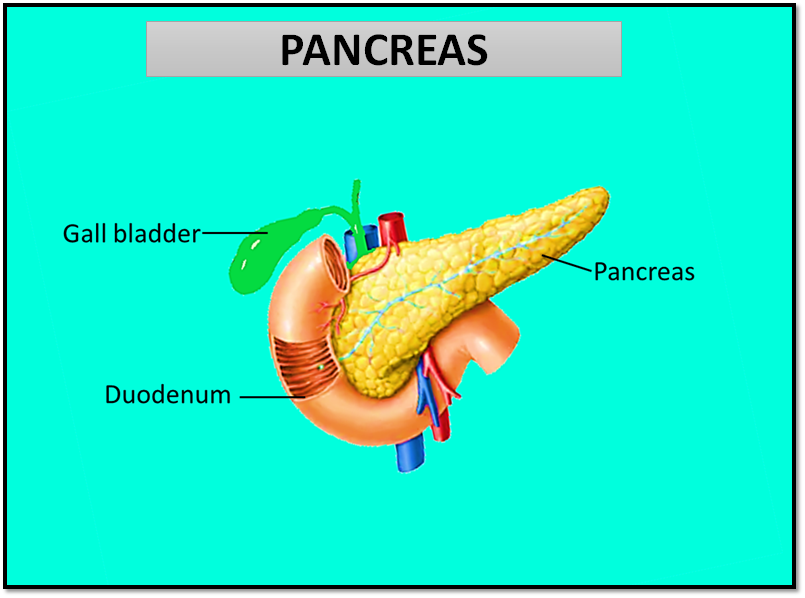Question
Question: The gland which is exocrine and endocrine is (a)Adrenal (b)Pituitary (c)Pancreas (d)Liver...
The gland which is exocrine and endocrine is
(a)Adrenal
(b)Pituitary
(c)Pancreas
(d)Liver
Solution
The gland which has both endocrine and exocrine parts are known as heterocrine gland.It contain both exocrine cells that secrete digestive enzymes and endocrine cells that release hormones. Endocrine glands are ductless glands of the endocrine system and exocrine glands are those glands that secrete substances into an epithelial surface by means of ducts.
Complete answer:
Exocrine glands of human beings include sweat,salivary,mammary,sebaceous,prostate and mucous etc. and endocrine glands include thyroid,parathyroids,adrenals,pituitary,pineal,hypothalamus,thymus and pancreas.Pancreas is a heterocrine gland with enzyme secreting exocrine and hormone secreting endocrine portions.Its endocrine part is only less than 2% of pancreatic tissue.It consists of numerous scattered groups or clusters of hormone-secreting cells, called pancreatic islets or islets of Langerhans. Each cluster is formed of four kinds of cells, they are beta cells, alpha cells,delta cells and gamma cells.Beta cells secrete insulin and amylin,alpha cells secrete glucagon,delta cells secrete somatostatin and gamma cells secrete pancreatic polypeptide.Insulin in mainly concerned with lowering of blood sugar levels.It stimulate cellular oxidation of glucose.Glucagon is anti-insulin in action,and its principal role is to raise the blood sugar level.Amylin tends to supplement insulin in lowering blood sugar level.it is also believed to act on gastrointestinal system and produce satiety after eating.Somatostatin inhibits the secretion of insulin,glucagon,amylin and pancreatic polypeptide.
Additional Information:
-The balanced production of insulin, glucagon and somatostatin is regulated by a homeostatic mechanism which involves the mutual regulation of these hormones.
-Thus, insulin inhibits the production of glucagon.
-Glucagon stimulates the production of both insulin and somatostatin.
-Somatostatin inhibits the production of both insulin and glucagon.
-Insulin and glucagon control carbohydrate metabolism and maintain blood sugar level.
-Their secretion is directly controlled by blood sugar level through a negative feedback system.
-Beta cells secrete insulin in response to rising blood sugar level,whereas alpha cells secrete glucagon in response to falling blood sugar level.
-When the blood sugar level goes much beyond the normal,the chemical sensors in the beta cells stimulate the cells to secrete insulin.
-When blood sugar levels fall low,the cells are no longer stimulated and insulin production considerably slows down.
So, the correct answer is ‘Pancreas’.
Note: Deficiency of insulin causes diabetes mellitus.Over production of insulin accelerates glycolysis and glycogenesis. This causes abnormal fall in blood sugar level,often resulting in a dangerous condition known as insulin shock.It is characterised by sudden drop in body temperature, excessive sweating,extreme fatigue etc.

